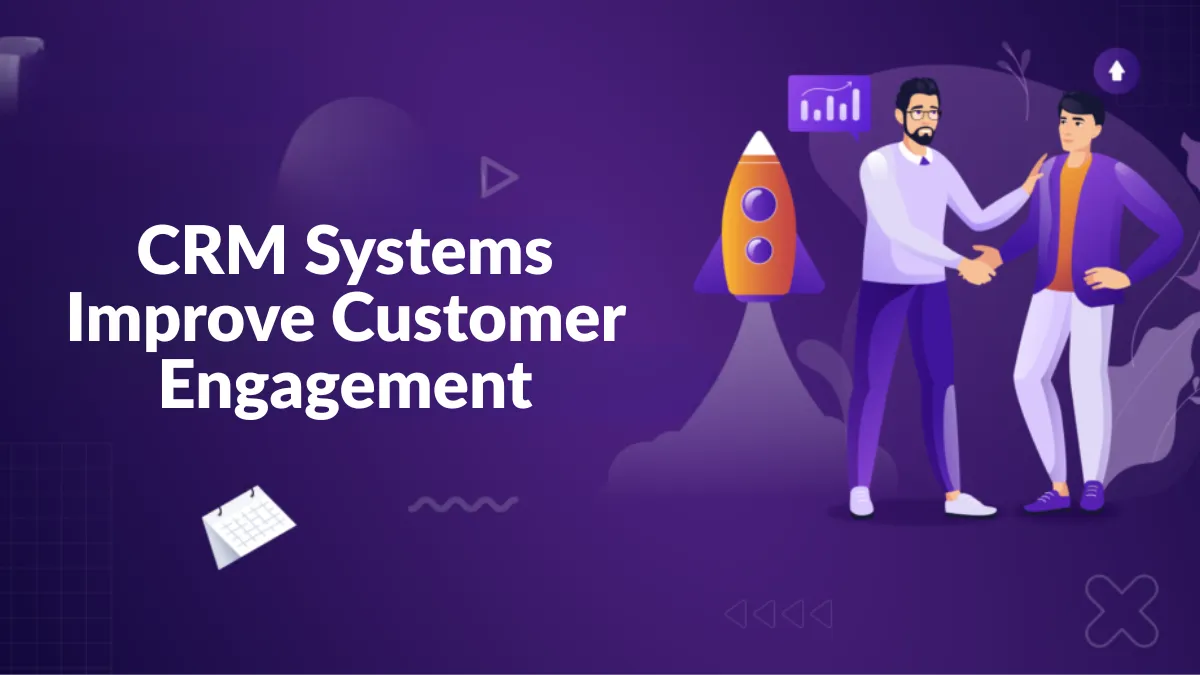In today’s highly competitive digital economy, customer engagement is no longer just a buzzword—it’s a lifeline for brands looking to retain loyal customers and drive sustainable growth. At the heart of effective engagement lies data-driven strategy, and no tool is better suited for this than a Customer Relationship Management (CRM) system.
CRM systems are not just digital contact books. They are dynamic platforms that allow businesses to personalize interactions, understand customer behavior, and build stronger, longer-lasting relationships. Let’s explore how CRM systems can significantly enhance customer engagement and transform the way businesses communicate.
What Is Customer Engagement?
Customer engagement refers to the emotional connection and level of interaction a customer has with a brand. It includes how often they communicate with your brand, their loyalty, their satisfaction, and how they respond to your marketing or service efforts.
Engaged customers tend to:
- Stay longer with your brand
- Spend more
- Recommend your products or services
- Offer valuable feedback
A CRM system helps in facilitating these behaviors through intentional, informed, and responsive communication.
Key Ways CRM Systems Improve Customer Engagement
1. Centralized Customer Data
A CRM stores detailed profiles of each customer—name, email, buying history, communication logs, preferences, and even social media behavior. This enables businesses to engage customers in a more personalized and relevant way, rather than sending generic messages.
Example: If a customer recently purchased a smartphone, your CRM can trigger follow-up emails about accessories or protection plans—exactly what the customer might need next.
2. Personalized Communication
CRM platforms allow you to segment your customers by behavior, demographics, or purchase history. With these segments, businesses can tailor communication and offers to suit specific needs, resulting in more effective engagement.
Example: Send birthday greetings with exclusive offers, or tailor emails based on the customer’s location or interests.
3. Multichannel Interaction
Customers interact across various touchpoints—email, chat, social media, website, or phone. CRM integrates these channels, offering a unified customer view and ensuring consistency in every interaction.
Benefit: Whether a customer contacts your business via Instagram DM or email, your team can view their history and respond appropriately.
4. Automation and Timely Follow-Ups
CRM systems automate repetitive tasks like welcome emails, reminders, order confirmations, and customer satisfaction surveys. Timely communication makes customers feel remembered and valued.
Example: Automated re-engagement emails can target users who haven’t interacted with your site in a while, prompting them to return with an offer or update.
5. Customer Feedback and Sentiment Analysis
Some advanced CRM platforms allow you to collect and analyze customer feedback directly. You can identify pain points, understand sentiment trends, and adjust your strategy in real time.
Benefit: This proactive approach builds trust and loyalty as customers feel heard and appreciated.
6. Loyalty and Reward Programs
CRM can manage and track customer loyalty programs efficiently. By offering personalized rewards based on spending or behavior, companies can increase engagement and motivate repeat purchases.
Example: A tiered reward system tracked via CRM ensures each customer receives offers relevant to their engagement level.
7. Enhanced Customer Support
A CRM system ensures support agents have complete access to a customer’s history, previous complaints, and interactions. This allows for faster resolution, reduced frustration, and higher satisfaction rates.
Result: Happy customers are more likely to engage positively, leave reviews, and recommend your brand.
8. Insights and Predictive Analytics
Modern CRM tools include AI-powered insights that analyze customer behavior and predict future actions. This allows companies to proactively reach out with relevant content, offers, or support before the customer even asks.
Example: Noticing a drop in activity? Your CRM can alert your team to re-engage the customer before churn happens.
Real-World Impact of CRM on Engagement
Companies that effectively implement CRM solutions report:
- 30–40% higher customer retention
- 20% increase in customer satisfaction scores
- Improved Net Promoter Score (NPS)
- Better alignment between sales, marketing, and customer service teams
From startups to large enterprises, CRM has become the backbone of personalized and engaging customer journeys.
FAQs About CRM and Customer Engagement
1. How does CRM improve customer engagement?
CRM improves engagement by centralizing data, enabling personalized communication, automating follow-ups, and tracking customer behavior for better insights.
2. Can small businesses use CRM to engage customers?
Yes, there are affordable and user-friendly CRM tools like Zoho, HubSpot, and Freshsales specifically designed for small businesses.
3. Which CRM features help most with engagement?
Personalization, automation, customer segmentation, and multi-channel communication are the most powerful engagement features.
4. How does CRM contribute to better customer service?
CRM provides agents with detailed histories, preferences, and past complaints—allowing faster and more empathetic service.
5. Can CRM help retain customers?
Absolutely. By monitoring behavior and enabling proactive communication, CRM significantly boosts retention and loyalty.
6. What is the ROI of investing in CRM for engagement?
Studies show that CRM systems can deliver an ROI of 5x–8x by improving sales, satisfaction, and loyalty.
7. Are CRM tools complicated to use?
Many modern CRM platforms offer intuitive interfaces, onboarding tools, and automation features that make adoption easy.
8. Can CRM systems be integrated with social media?
Yes, most modern CRM tools can pull engagement data from platforms like Facebook, Instagram, Twitter, and LinkedIn.
9. Is CRM secure for storing customer data?
Leading CRM platforms follow data protection standards like GDPR, and offer encrypted storage and access controls.
10. How quickly can I expect to see results?
Most companies notice improvements in engagement and customer feedback within 3–6 months of implementation.
Conclusion
Customer engagement is the heartbeat of modern business success—and CRM is the system that makes it beat stronger. By integrating smart technology with meaningful human interaction, CRM systems empower businesses to communicate more personally, resolve issues more quickly, and build relationships more intentionally.
In a world where attention spans are shrinking, and competition is fierce, a good CRM strategy is your ticket to not just keeping customers—but keeping them engaged.
